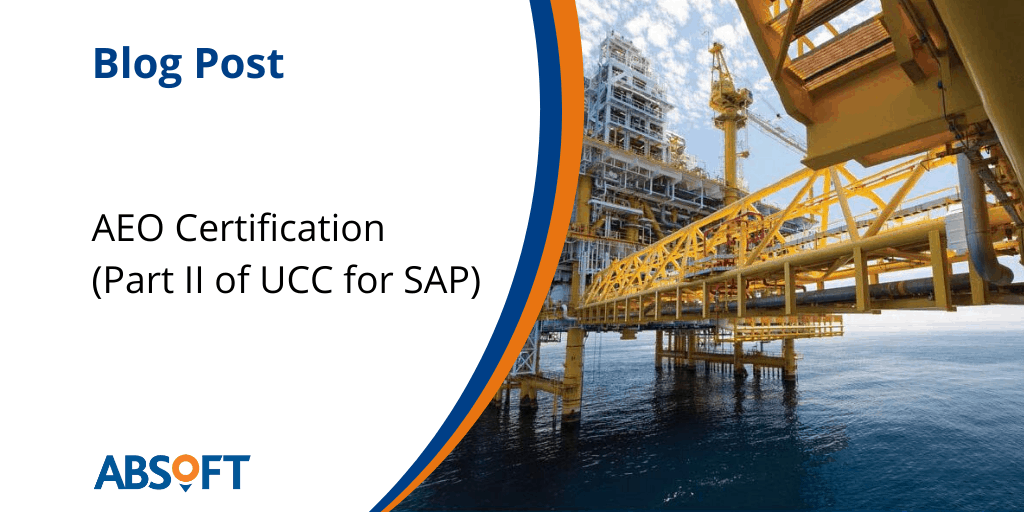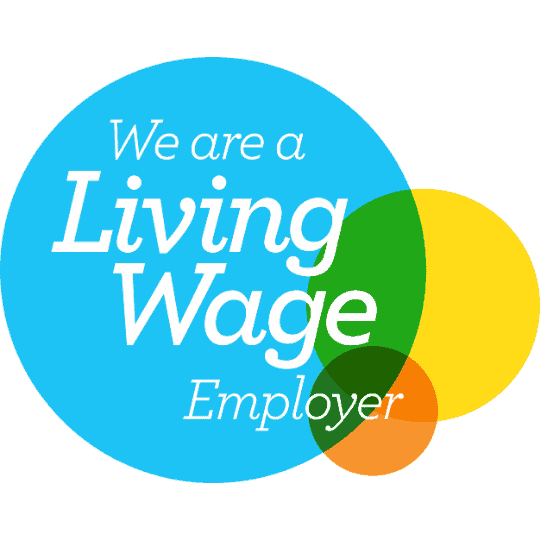With Union Custom Code regulations (UCC) changing import, export and storage procedures across EU borders from 1st May 2016, the EU Commissioner for Statistics, Audit and Anti-fraud confirms that this is a worthwhile investment – especially, if your organisation is involved in the international supply chain.
As context for the AEO discussion below, Absoft SAP Consultant Björn Harzer recently published a blog article “Is your SAP ERP ready for Union Custom Code regulations?” This blog includes information on what the new Union Customs Code regulations will entail, including guidance on how organisations can optimise their SAP ERP systems to remain compliant.
If you are up to speed on the Union Customs Code regulations, continue to read our blog below on how achieving Authorised Economic Operator (AEO) certification can allow for customs exemptions, or expedite processes under imminent UCC regulations.
What is AEO?
Firstly, a definition; AEO is an internationally recognised status which demonstrates that an organisation operates both efficient and compliant customs controls and procedures.
There are two types of AEO certification available:
- Customs Simplification AEO certificate (AEOC)
- Security and Safety AEO certificate (AEOS)
AEO certification is not mandatory, but the status is attributed to organisations that maintain safe, secure and compliant international trade procedures. For that reason, AEO accredited organisations are provided with quicker access to simplified custom procedures, they can fast-track shipments through customs and security procedures, or in some cases, include waivers for guarantees.
What are the benefits of AEO certification?
Improved relations with customs authorities resulting in fast-track processes and fewer delayed shipments are amongst the obvious benefits, but what does this look like at the procedural level? Here are some examples:
- AEO’s may not be required to provide financial security for customs procedures (Inward Processing or Customs Warehousing)
- AEO’s will be given a lower score in risk analysis systems during profiling
- AEO’s can ask for customs controls to be diverted to a more convenient place
- If physical controls are to be conducted AEO’s will be given priority
- AEO’s will benefit from Mutual Recognition Agreements (MRA) with countries outside the EU, which could result in faster movement of goods through non EU borders
What are the caveats my organisation needs to consider?
It’s worth acknowledging that there are some considerations before obtaining AEO certification.
Firstly, AEO status is only available for businesses established in the EU, with goods crossing in and out of the EU border. Certification is available to all manufacturers, exporters, freight forwarders, warehouse keepers, customs agents, carriers or importers, but AEO is issued to a business for their specific role in the supply chain.
Similarly, AEO certification is required per legal entity and a single focal point has to be appointed to manage this application. With dividends to follow in the long term, this can be an onerous process for one individual to manage upfront, and in addition to routine daily activities.
As a final note, it’s important to mention that AEO status does not alter customs duty rates, but we could argue that the benefits of AEO certification, magnified by the new UCC regulations, will save time and money in the prevention of delayed shipments and import/export duty fines.
How can my organisation apply for AEO certification?
To obtain AEO certification your organisation must have an EORI number (Economic Operator Registration and Identification) and complete an application pack, which contains C117 and C118 forms, as required by the HMRC.
As a best practice initiative, it is recommended that your organisation conducts a self-assessment before the visit from HMRC – this ‘dress rehearsal’ can identify any areas for improvement prior to the audit, particularly because areas such as: insufficient accounting or logistics data, incorrect customs values, or failure to record goods moved from the customs warehouse, can result in a non-conformance.
How can SAP ERP optimisation assist in our AEO application?
If successful, AEO certification will be issued within 120 days, and in light of UCC regulations, it’s likely that more organisations will apply for AEO status to counteract the introduction of stricter procedures.
Absoft has already been working with customers, who move goods across EU borders, to optimise their SAP ERP systems. This involves a review and classification of all stock materials, in accordance with their import status, and to develop a robust process which allows for the track and trace of all goods, from import to export.
If you would like to learn more about how your SAP ERP system can support your AEO application and comply with new UCC regulations, contact Absoft today via +44 (0)1224 707 088 to speak with our SAP consultants or make an enquiry below.







